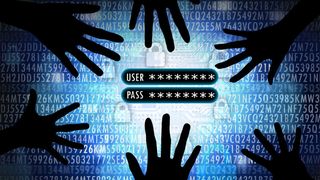Many remote employees aren't playing safe with their passwords
Increased risk hasn't led to employees creating stronger passwords

Despite the increased number of cyberattacks over the past 18 months, employees working from home are still practicing poor password hygiene according to a new report from LastPass by LogMeIn.
To compile its fourth "Psychology of Passwords" global report, the password management company commissioned the market research firm Lab42 to survey 3,750 professionals across a wide variety of industries in the US, the UK, Germany, Australia, Singapore, France and India.
According to the report, while 92 percent of respondents are aware that using the same password or a variation of it is a risk, 65 percent still reuse passwords across their accounts. Although consumers have a solid understanding of proper password security and the actions they need to take to minimize risk, they still pick and choose which information they apply that knowledge to.
- We've built a list of the best identity theft protection solutions
- These are the best password generators on the market today
- Also check out the best business password management software
LastPass also found that most users acre creating passwords that leverage personal information that could possibly have ties to public data such as a birthday or home address. Despite the fact that 79 percent of respondents agreed that compromised passwords are a problem, over half still rely on their memory to keep track of passwords as opposed to using a password manager.
More time online equals greater risk
As the pandemic has led to people spending more time online, 91 percent of respondents said that they have created at least one new account this year. In fact, 90 percent of those surveyed now have up to 50 online accounts that they need to remember the passwords to.
LastPass' report also revealed that almost half (47%) of respondents did not change their online security habits while working remotely with 44 percent admitting to sharing sensitive information and passwords for their work accounts during that time. This means that almost half of employees have engaged in risky password behavior while working remotely and IT admins are taking this into account when designing their organization's hybrid work policies.
The kind of account also comes into play when consumers create passwords as 68 percent said they create stronger passwords for financial accounts while only 32 percent said they would create strong passwords for their work-related accounts.
Are you a pro? Subscribe to our newsletter
Sign up to the TechRadar Pro newsletter to get all the top news, opinion, features and guidance your business needs to succeed!
VP of product management at LastPass, Dan DeMichele provided further insight on the report's findings in a press release, saying:
“Our latest report showcases the impact of the COVID-19 pandemic amid the increased time we spent online – which has in turn, increased our vulnerability to potential hackers. As we continue to grow our online presence, we need more robust protection for our online information. One way to combat this is by investing in a password manager which can be used to store your personal and digital information safely. As a business or IT lead, adding an additional layer of security, including multi-factor authentication or single sign-on options, will help to ensure that your employees are the only ones accessing their information.”
- We've also rounded up the best password managers
After working with the TechRadar Pro team for the last several years, Anthony is now the security and networking editor at Tom’s Guide where he covers everything from data breaches and ransomware gangs to the best way to cover your whole home or business with Wi-Fi. When not writing, you can find him tinkering with PCs and game consoles, managing cables and upgrading his smart home.
